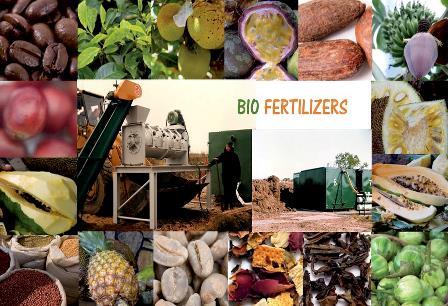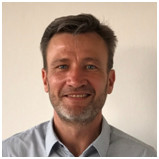Meet an A2i member: BACESS/Rootzone Group
“It is such a pity! Imagine how much good bio-fertilizer you can make from the leftovers from an ordinary African market. Piles of leaves, cuts from the vegetables and fruits and all other kinds of organic waste. It is just thrown out or burned. All the produce that is not sold soon degrades in the heat. All this waste we can transform into great bio-fertilizer. Which is just what the African farmer needs. There is a huge lack of good bio-fertilizer in Africa, where there, in many places, is only limited access to fertilizer in general, and often only an imported artificial fertilizer.”
The words come from CEO Mikkel Dalsgaard from BACESS, one of the newer members of Access2innovation. BACESS is one of five companies in Rootzone Group. They sanitize organic waste and transform it into bio-fertilizer. Solid organic waste is transferred by high-temperature composting into high-valued fertilizer. The material can also be coffee husks or pulp from coffee processing, nuts and juice production – in fact any kind of residue from food processing in a sustainable closed bio-circular loop. It all undergoes an EU-verified process that kills all kinds of disease germs and unwanted weeds to secure the hygiene of the biomass before recirculation.

10 tons of quality biofertilizer a week
The three African companies in the Rootzone group work in Uganda and Kenya. They offer a safe recirculation of organic waste fractions (from households, markets, agriculture, meat production centers, juice production plants, cashew nut shells, coffee beans etc.). Already the first pilot plant in Uganda produces 10 tons of quality bio-fertilizer every week. This happens in closed bio-containers to enable the heat treatment process without emitting methane and nitrous oxide.
Infinite perspectives in Africa – doubles the outcome for farmers
Recently Mikkel Dalsgaard got an agreement with the government food program in Uganda, which helps farmers with everything from seed to export. This gives him high hopes:
“I saw infinite perspectives in Africa for us regarding both the challenge of waste and the challenge of making quality fertilizers available to small-scale farmers. It’s fine to compost, but if we really want to change the standard of living, people will have to nutrient boost the compost to get an increased yield on their farmland. If you just make compost, you recycle carbon, but the increased yield requires a bit more. Experiments show that we can double the yield on coffee plants with our bio-fertilizer. This gives both the farmer higher yield and higher income, but also a boost to country’s economy and the country’s GDP..”

Hard to get licenses
Mikkel Dalsgaard hopes that the cooperation with Access2innovation will help RootZone Group’s interaction with government authorities and acquirement of the necessary licenses. One of the biggest challenges for companies is navigating the different rules of the game in the African countries. For example, in Uganda, the producers of chemical fertilizer have not made it easy for RootZone to get a license for its organic bio-fertilizer.
“Hopefully, Access2innovation’s good cooperation with the Danish embassy in Uganda can strengthen our network around embassies. Our goal is to reach out to international companies and present our solutions to large players like Nestlé, Unilever, Neumann Kaffee Gruppe and Starbucks. They all have sustainability agendas. Our biotechnology would look good in their sustainability reports – and make a real difference. From us they get a sustainable waste management solution that covers both wastewater treatment and organic fertilizer and help the small-scale farmers big time”, Mikkel Dalsgaard finishes.

Are you into responsible food production or afforestation?
If you are interested in cooperating with Mikkel Dalsgaard about e.g. organic waste or afforestation, do not hesitate to call him at +4542951211.
